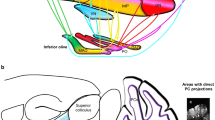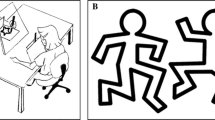Abstract
Nefiracetam is undergoing preclinical and clinical tests as a cognition-enhancing drug in Alzheimer’s disease (AD). Nicotinic cholinergic receptors are lost in AD, and nicotinic as well as muscarinic cholinergic receptors are involved in the modulation of eyeblink conditioning. Experiments were carried out using young rabbits to examine the effect of nefiracetam on cholinergic antagonists to nicotinic (mecamylamine) and muscarinic (scopolamine) receptors. Rabbits were tested for 15 days in the 750 ms delay eyeblink classical conditioning paradigm in paired and explicitly unpaired conditions. Nefiracetam at a dose of 15 mg/kg significantly ameliorated the effects of 0.5 mg/kg mecamylamine, and nefiracetam at a dose of 10 mg/kg significantly ameliorated the effect of 1.5 mg/kg scopolamine. The vehicle alone and nefiracetam alone groups performed similarly to the groups treated with mecamylamine or scopolamine and nefiracetam. Reversal by nefiracetam of a nicotinic as well as a muscarinic cholinergic antagonist indicates that the drug may affect deficits specific to AD.
Similar content being viewed by others
Author information
Authors and Affiliations
Additional information
Received: 16 July 1996 /Final version: 16 December 1996
Rights and permissions
About this article
Cite this article
Woodruff-Pak, D., Hinchliffe, R. Mecamylamine- or scopolamine-induced learning impairment: ameliorated by nefiracetam. Psychopharmacology 131, 130–139 (1997). https://doi.org/10.1007/s002130050275
Issue Date:
DOI: https://doi.org/10.1007/s002130050275




